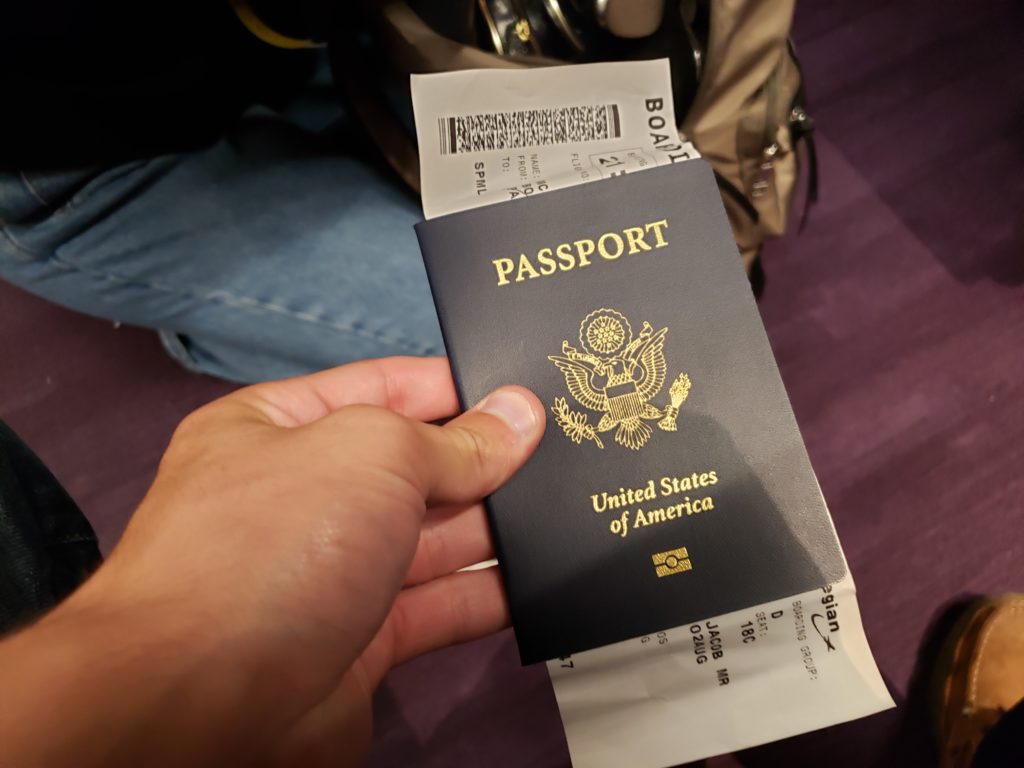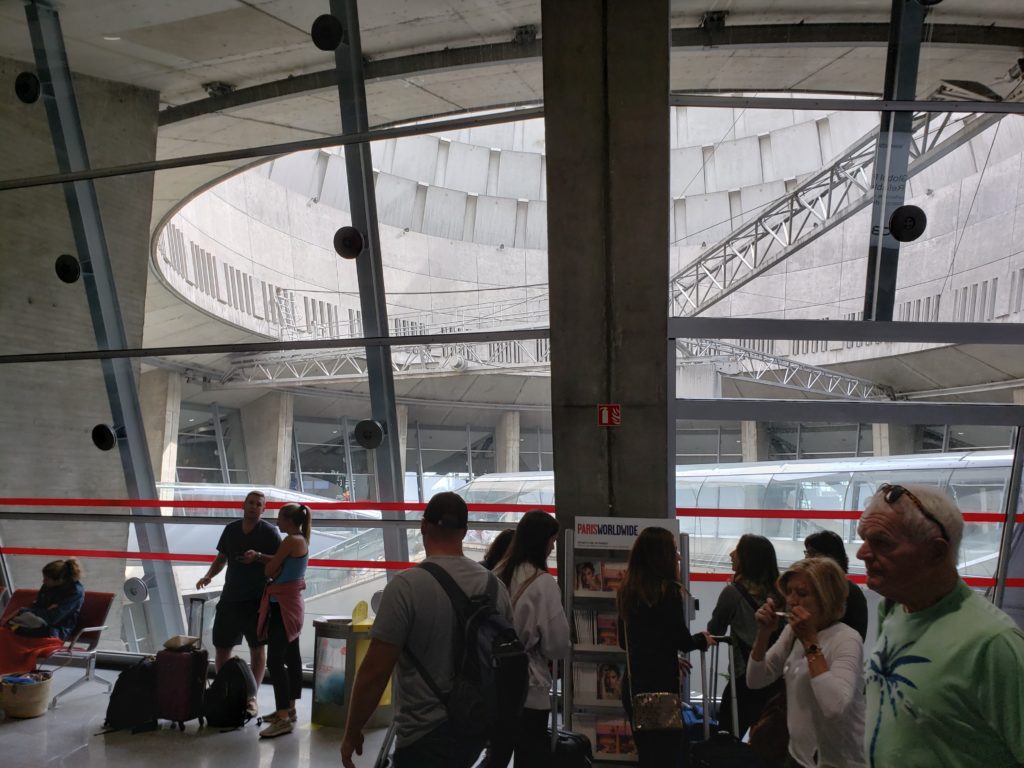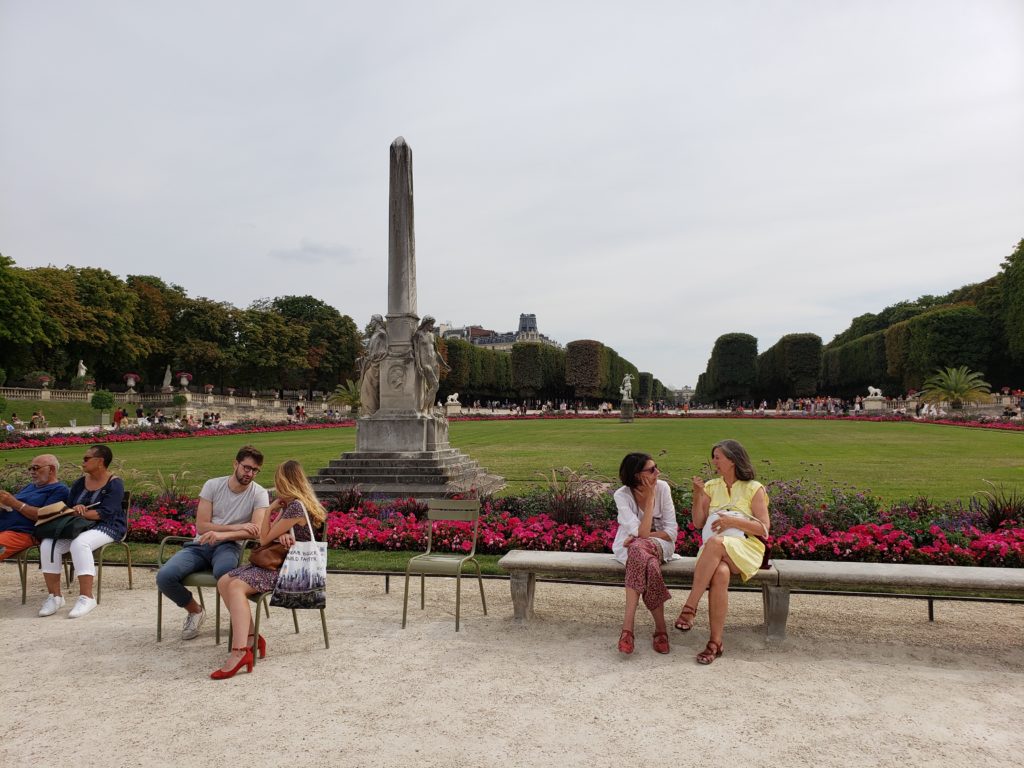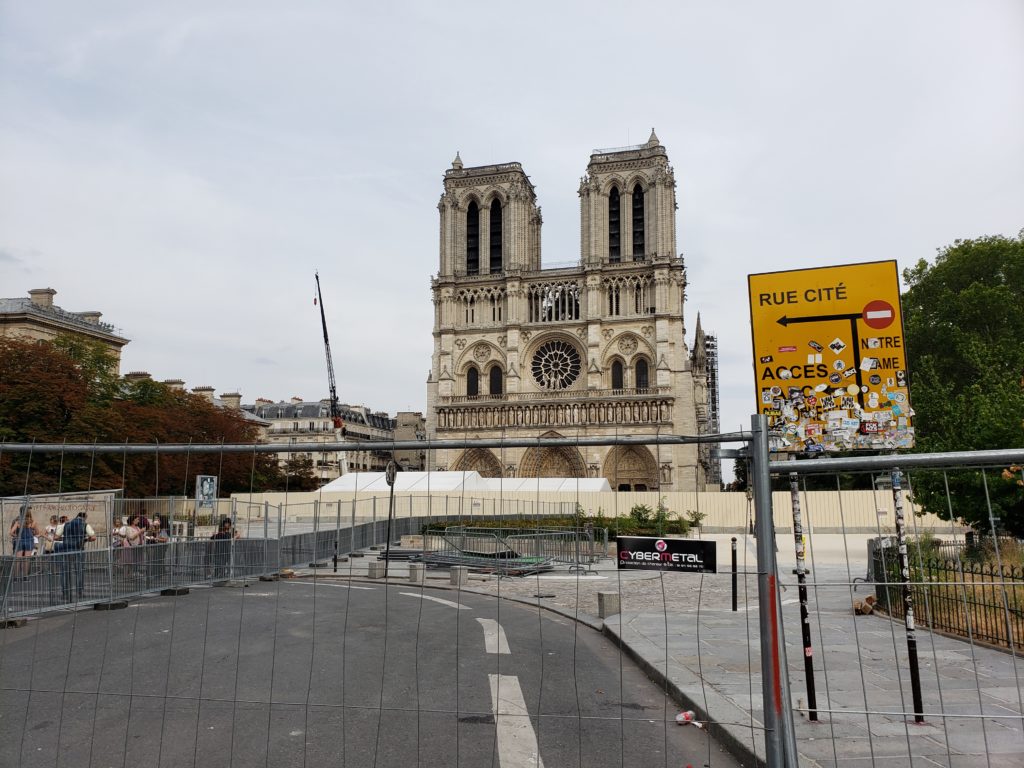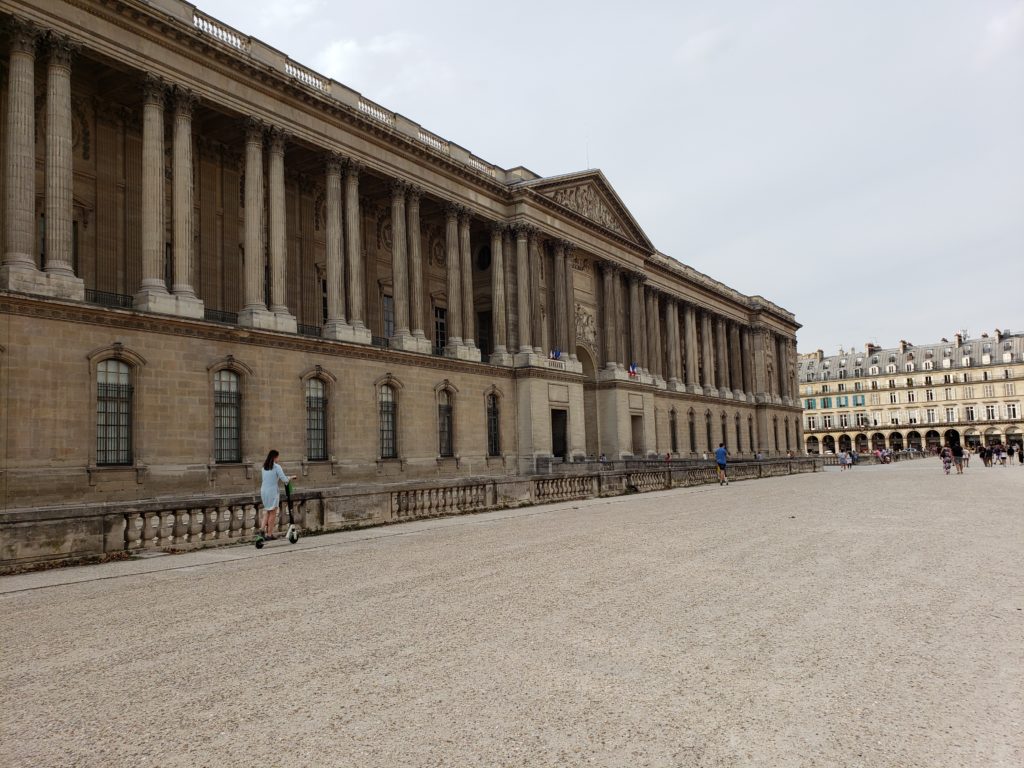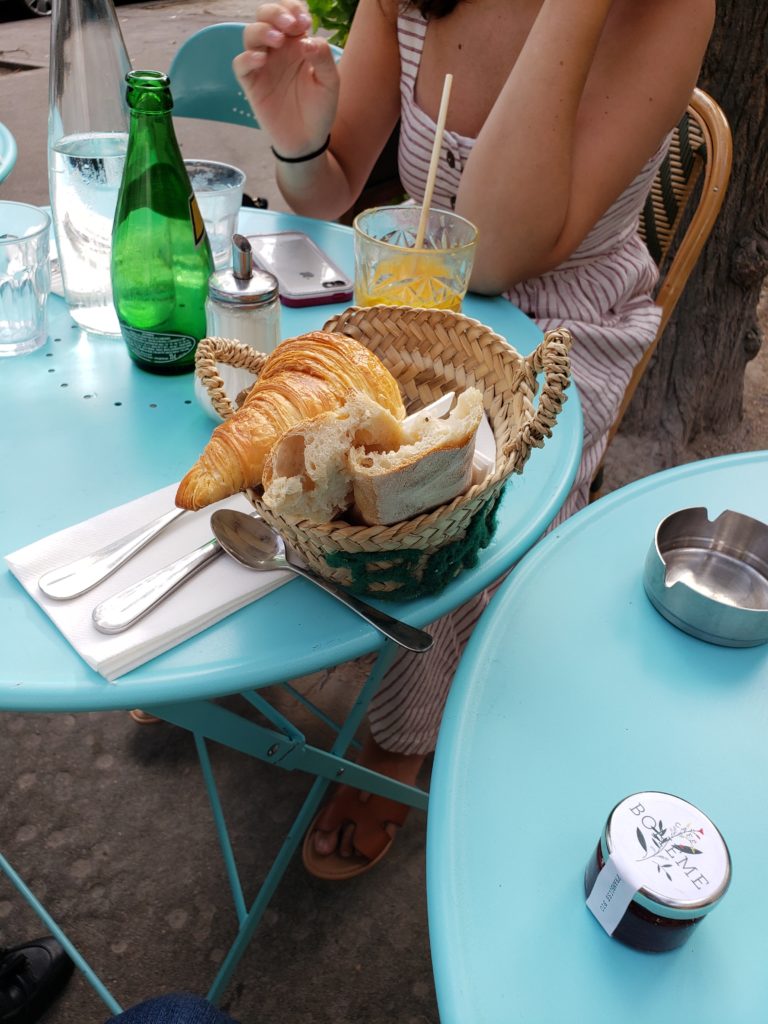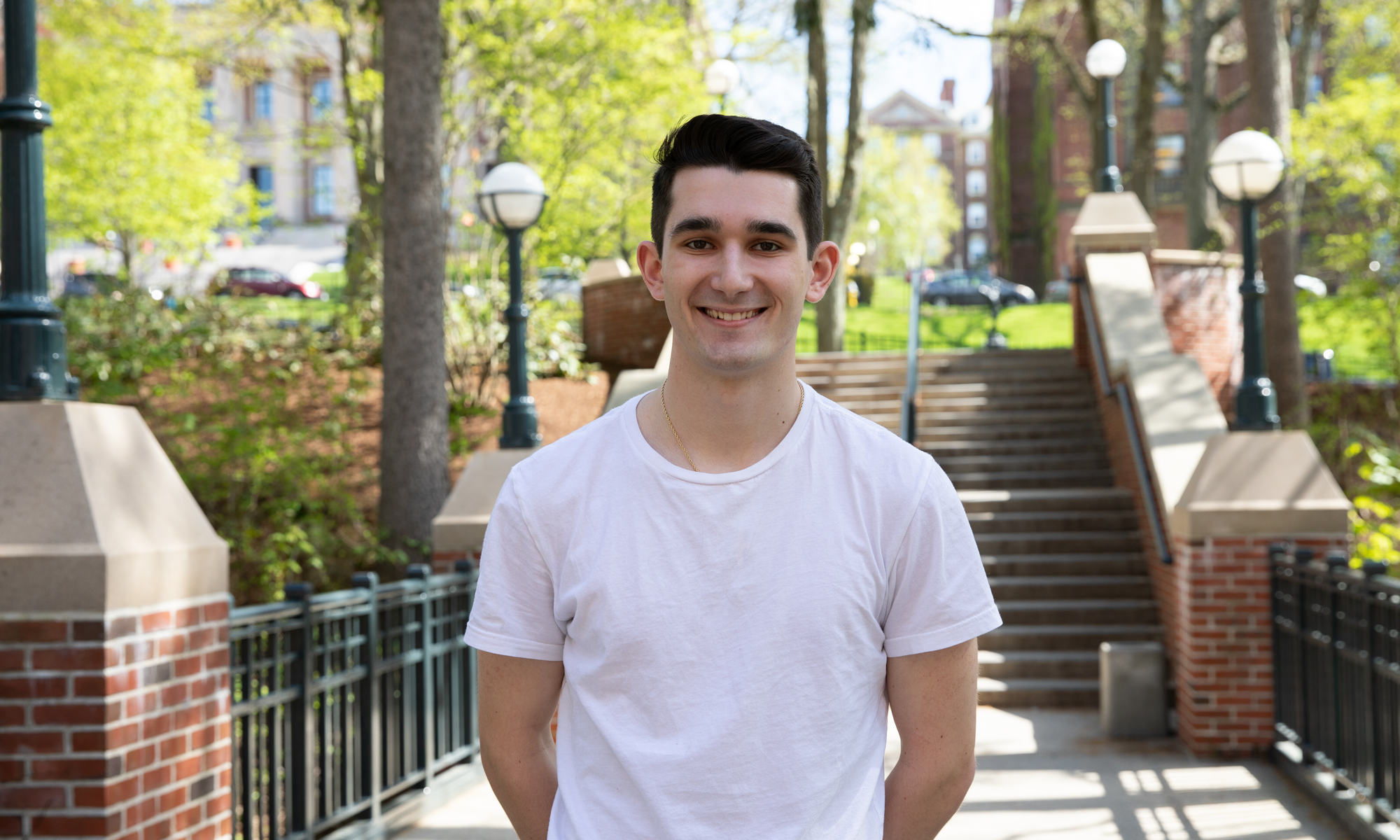Hello readers of the blog!
First of all, thank you for following my year ahead on this sure-to-be crazy journey in France. My name is Jacob McDonald and am currently a junior (the time really does go by so fast) Computer Science & French double major. Back home in the states, many people know me for my love of volleyball (I was captain of my high school team and co-captain of the HC Club team) and my tranquil use of free time, whether it be hanging out with friends and family, reading, or (if I really have a good amount of free time) working on calligraphy projects – another hobby of mine. At Holy Cross you can find me most of the time in Kimball either working as a Captain or doing homework, for I love the Kimball atmosphere of general chatter — and the food of course.
Now onto the matters at hand: I have taken French courses for more or less 8 years and have loved them since the very beginning. I find myself very fortunate to have had teachers and professors that are not only very passionate about their professions but are also able to transcend that kind of love they have for the language and culture onto their students . I found myself in that kind of group. In regards to the French major, I never exactly found myself in the utmost desire to major in this field but rather it was more of the feeling of “well, I don’t see myself not taking French courses anytime soon so I might as well.” Leading up to departure I of course wondered how much French would hold up to the natives and French way of life and, as I am currently in France as of this blog’s writing, I have my answer (though it will not yet be revealed – stay tuned).
The process to study abroad at Holy Cross is fairly straightforward for the most part. Once the Office announces that it is accepting applicants for the program, it is necessary to choose the program and fill in all sorts of required general information (how long you’re staying, uploading copies of your transcripts, etc). If you have any questions the Office is very good about answering them whether by visiting them in person or through phone/email. I know for sure I had a good handful of questions that I would never have had answered without them. Once you are accepted there is the whole new-wave-of-excitement phase; what now? What should I research? Where should I visit while I’m abroad? What should I pack? Among all of these new exciting feelings, of course, it is necessary to stay on top of everything that is necessary: filling out paperwork and staying in contact with the Office, applying and getting your passport (DO IT EARLY), applying and getting your VISA (see below), actually thinking about packing, and much more. It’s an exciting time and it should stay that way…as long as you stay on top of everything.
With that being said, the Visa process was probably the most difficult part of the Study Abroad process for those with France as their destination. It has two massive requirements: registering with Campus France and Études en France, as well as the actual application for the Visa (which includes a required no-exception in-person visit at your local friendly neighborhood French Consulate. The Campus France / Études en France application takes 3 weeks if it is not expedited, however if you do expedite it I believe it is a few days to a week (but comes with a massive ~$300 fee). All of the online paperwork, uploading photos, insurance information, information about Holy Cross and your host institution, etc takes a good while to do. Thus, if I have any advice for anyone applying for a Visa, it is START AS EARLY AS POSSIBLE – you will not regret it.
Three weeks later, once you receive an email that your application has been processed and accepted by Campus France, you can apply for the Visa on the French government’s website (finally!). This also takes a fair while online but not as long as the Campus France application. The most important part of this is the in-person appointment at the French Consulate. There are maybe less than a dozen around the U.S. and I drove an hour or so to Boston for mine. During the summer they are very busy so it is crucial to book your appointment (which you do after the application online) as soon as humanly possible for you. There are MANY documents required for the appointment – birth certificate, university acceptance letters, an affidavit letter (Holy Cross gives this to you), bank statements proving sufficient funds, passport-sized photos, proof of acceptance to Campus France / Études en France, etc.. The point is, it is CRUCIAL to be organized about this process and it should not be underestimated. Furthermore, It should be noted (that many of us going to France were unaware of) that when you go to the Consulate for your appointment, they TAKE YOUR PASSPORT to be sent to DC for actual Visa processing and finalization. From the time of the appointment to the time I received my passport back, it took about a week and a half. So a little bit of math: 3 weeks for the Campus France application, at least one week booking in advance for the consulate appointment, plus a week and a half or so for the passport/visa to be shipped to your house comes out to give or take a MONTH AND A HALF of processing and application — if you start everything on time. The point is that the process takes time and if that time is not respected then there can be serious consequences, such as not arriving to France on time.
Assuming you have started everything on time – enjoy the time of pre-departure! Every time you see your friends and family, they will ask, “are you excited for ______???” and of course your answer is “absolutely!” During the summer you’ll be trying to be with friends and family as much as possible – as you should – but the question inevitably comes of PACKING; exciting with the right mindset. Having just done this over a week ago now, I have some advice. First, unless you are absolutely required to for whatever reason, ONLY BRING ONE SUITCASE. Two suitcases + one carry-on + one personal item = a nightmare and workout you will not want to have. It is entirely feasible to pack for a life abroad in one suitcase – it takes a matter of preparation and thought to see what you really need and really do not. It comes down to a matter of priorities, and remember – you can always get things after the plane lands. Additionally, space/vacuum bags are a life-saver. I fit much more in my suitcases than I could have previously although it is always important to watch out for the weight limit. You could get the airport and the person behind the check-in desk could spare you for being over a few pounds, but with anything more you could get smacked with a $15 per kilogram fee. You (or your parents, if they are so generous) will not be happy. So pack light – you’ll be able to survive on minimal clothes because they last a long time.
Saying goodbye to friends and family is always hard, but it will be necessary to do. There is, however, some light in this fact and I thought of this saying and will continue to do so during my time in France:
“Everything worth doing is scary at first”
-Dan Avidan
That could not be more true.
Like I said, I am currently in France (Tours, to be exact, which will be the subject of my next entry). For now, enjoy some pictures of Paris from the day I landed!
